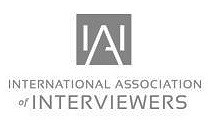I’m Tammy Clark and today we’re going to be talking about word choices and how important it is during the course of the investigative interview. A lot of people are aware, of course, that we want to avoid any of those harsh descriptive words that can induce unnecessary amounts of fear or concern in the person sitting across from us. Avoiding words like “arrest” and “prosecution” and “restitution” directly during the course of conversation may allow the person to continue to feel comfortable talking to us, which means we’re going to be allowed the opportunity to obtain additional information regarding whatever it was that brought them to that interview room in the first place. Additionally, we need to be aware of how some other words can sometimes rub people the wrong way.
For example, if we’re telling a rationalization and we happen to throw out the word “thief,” for example, somebody never intended to be a thief or never thought they would be a thief. Now while we’re using that to describe the person in the rationalization, not the person sitting across from us directly, we still don’t know how they’re going to perceive that. And quite frankly, every person’s reality is based off of their own perceptions. Even hearing the word “thief” or “theft,” they could all of a sudden feel more embarrassed for what they’ve done or even judged, which means the may no longer feel comfortable talking to us.
And of course we want to avoid any type of word that may promote the consideration or the perspective of leniency or take away from the seriousness of the act that the person who was involved in. We want to avoid words like “accident” and “mistake” because now there could be a question as to was there actual intent behind their actions.
Also avoiding the word “help” and being cognizant of how we use that during the conversation. We can’t guarantee how this person is going to receive it. Even if I simply say, “I was trying to help a person understand my role and how I do the investigations.” It could be that one word that they hear – help – and now the person sitting across from me may think, “Oh she wants to help me. Maybe I’ll keep my job. Maybe it won’t be as bad as I thought it would be.”
Being aware and cognizant of the words we use, and how they can impact the person across from us is vitally important during the course of an investigative interview because we never want to send the wrong message, but we also don’t want to make it a much more difficult conversation than it needs to be.
Hopefully, next time you are preparing for your interview, you can take a little list of different words that you may use day in and day out or even tally the different words that you want to try to avoid during the conversation. If we make a direct effort to remove those words from our dialogue, less likely they are to be introduced by ourselves and the less likely they are to be glommed onto by the person sitting across from us.
This was the WZ interviewing tip presented by the International Association of Interviewers, and we look forward to seeing you again soon.


